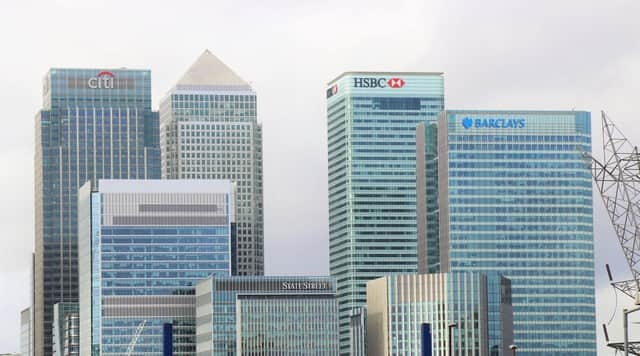Bankers should be there in good times and bad - Mark Prentice


It used to be a given that banks would support business owners through good times and bad. Yet the pandemic crisis suggests otherwise. Since March 2020, mainstream UK banks have appeared reluctant or unable to offer the support that many business owners might have hoped for.
This issue has certainly been a talking point among family firms and advisers that I know. Some have expressed frustration at how difficult it has become to have a proper conversation with anyone at their bank, while others have found that some banks have declined to let them open an account.
Advertisement
Hide AdAdvertisement
Hide AdThe pandemic crisis has been tough for the big banking groups. Struggling to reorganise themselves operationally, they’ve had to fight fires with large corporate clients hit hard by the crisis, while nervously eyeing up the heightened threat of fraud via the Bounce Back Loan scheme. Like tankers struggling to execute a U-turn, these huge institutions are particularly sensitive to ‘black swan’ events.
A Financial Times and Appian survey of 250+ senior banking executives in autumn 2020 offered a positive spin, reporting that the pandemic crisis had driven a surge of innovation in mainstream banking. Dig a little deeper though, and almost all of this ‘innovation’ was focused on cutting costs and increasing automation.
The crisis appears to have accelerated the desire of the UK’s largest banks to withdraw further from contact with their customers. A 2020 Kearney report predicted that 40,000 bank branches will close across Europe in the next three years, following a 31% shrinkage over the past decade.
Similar concerns have been expressed across the Atlantic. In December, a group of senior economists and academics published a report on US banks’ treatment of long-term borrowers during the crisis. “Firms may not be able to count on relief from their relationship banks during rare problem circumstances or ‘black swan’ events,” it concluded, adding that some smaller US banks had offered significantly more support.
It’s a familiar-sounding trend. Although Hampden & Co is a private bank, rather than a business bank, we do provide business banking services to some of our clients – typically owner-managers of businesses with low-volume, high-value transactions.
Therefore, unlike mainstream banks, we haven’t been distracted by fighting fires on behalf of corporate clients. It’s very much been business as usual for us, albeit somewhat brisker as increasing numbers of people turn to private banking. Many tell us that they like the fact we aren’t driven by algorithms and call centres. Instead, our clients can speak directly to an experienced banker – someone who understands them and their finances – whenever they need to.
The founder of ‘black swan theory’, Nassim Nicholas Taleb, argues that COVID-19 is a ‘white swan’ event rather than a black one because a global pandemic was entirely predictable. However, the crisis has clearly had an extraordinary impact on people’s lives and businesses, and will continue to do so for months and maybe years. And whatever the colour of the swans shaping our horizons, bankers really should be there for their clients – in good times and bad.
Mark Prentice is Head of Banking with Hampden & Co.
Comments
Want to join the conversation? Please or to comment on this article.